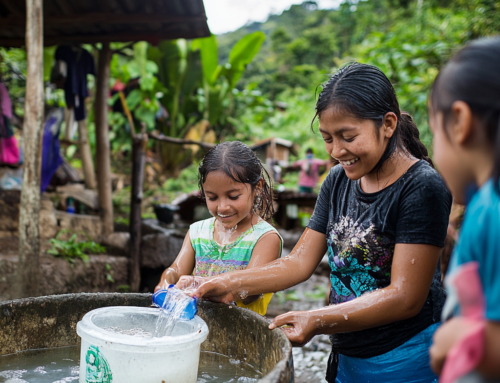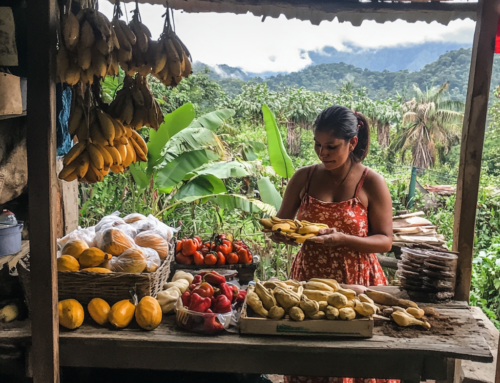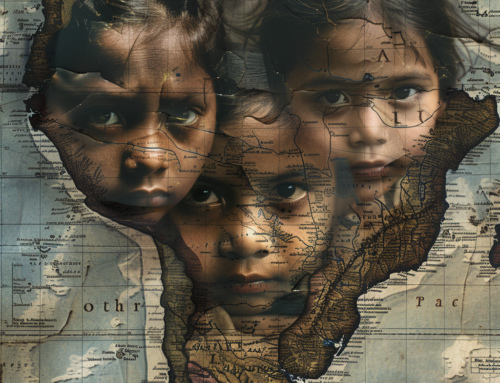By Michael Savage
Central America, a region comprising seven countries from Guatemala to Panama, faces significant challenges in achieving gender equality and women’s empowerment.
Despite progress in recent years, women in this region continue to encounter obstacles that hinder their full participation in social, economic, and political spheres.
My wife, Sandra, who was born in Honduras, first enlightened me about the need for greater education and empowerment of the women from her home country. As I studied further, I saw that women across the entire landscape of Central America often didn’t have a fighting chance for equality.
When Sandra and I established the Savage-Rivera Foundation to help the impoverished in her native Honduras, I learned even more about the role of education to help overcome poverty.
So, let me share with you what I’ve learned about the current state of women’s empowerment in Central America, highlighting key issues and the importance of addressing gender inequality to combat poverty.
The Link Between Women’s Empowerment and Poverty Reduction
Empowering women is crucial for addressing poverty in Central America. When women have equal access to resources, education, and economic opportunities, entire communities benefit.
Studies have shown that:
- Women tend to reinvest a higher portion of their earnings in their families and communities compared to men.
- Increasing women’s labor force participation can significantly boost GDP growth.
- Educated women are more likely to have healthier, better-educated children, breaking the cycle of intergenerational poverty.
Key Challenges
1. Gender-Based Violence
Gender-based violence (GBV) remains a pervasive issue in Central America. Countries like El Salvador, Honduras, and Guatemala have some of the highest femicide rates globally. This violence not only threatens women’s physical and mental well-being but also limits their ability to participate fully in society and the economy.
2. Unequal Access to Resources
Women in Central America often face discrimination in accessing essential resources such as:
- Land ownership and property rights
- Financial services and credit
- Healthcare services, including reproductive health
- Technology and digital resources
This unequal access perpetuates economic disparities and limits women’s ability to improve their livelihoods.
3. Limited Political Representation
Despite some progress, women remain underrepresented in political leadership positions across Central America. This lack of representation can result in policies that fail to address women’s needs and concerns adequately.
4. Educational Disparities
While primary education enrollment rates have improved for girls in recent years, disparities persist in secondary and tertiary education. Factors such as early marriage, teenage pregnancy, and traditional gender roles continue to hinder girls’ educational advancement.
The Role of Education in Promoting Gender Equality
Education is a powerful tool for promoting gender equality and women’s empowerment in Central America.
It can:
- Increase women’s economic opportunities and earning potential
- Delay marriage and childbearing, allowing women more control over their lives
- Improve women’s health outcomes and those of their children
- Enhance women’s decision-making power within households and communities
- Foster greater awareness of rights and increase civic participation
Strategies for Progress
To advance women’s empowerment and gender equality in Central America, a multi-faceted approach is needed:
- Strengthen legal frameworks to protect women’s rights and combat gender-based violence
- Implement gender-responsive budgeting to ensure public resources benefit women and men equally
- Promote women’s leadership in politics and business through quotas and capacity-building programs
- Invest in girls’ education, particularly at secondary and tertiary levels
- Expand access to financial services and entrepreneurship support for women
- Address cultural norms and stereotypes through awareness campaigns and community engagement
Empowering women and promoting gender equality in Central America is not just a matter of human rights; it is essential for the region’s sustainable development and poverty reduction.
By addressing the challenges of gender-based violence, unequal access to resources, and educational disparities, Central American countries can unlock the full potential of their female population.
This, in turn, will lead to more prosperous, equitable, and resilient societies. As the region continues to grapple with issues of poverty and inequality, investing in women’s empowerment must remain a top priority for governments, civil society, and international partners alike.
ABOUT MICHAEL SAVAGE OF NEW CANAAN, CT
Mike Savage from New Canaan is the Founder of 1-800 Accountant that helps businesses with their accounting services and needs through cutting-edge technology and customer support. He runs the company alongside CEO Brendon Pack.
In his spare time, Savage enjoys creating unique koi ponds, collecting Michael Jordan sneakers, vintage Lego sets, and admiring muscle cars and unique pop art. He and his wife also spearhead the Savage-Rivera foundation to help impoverished families in Honduras.




